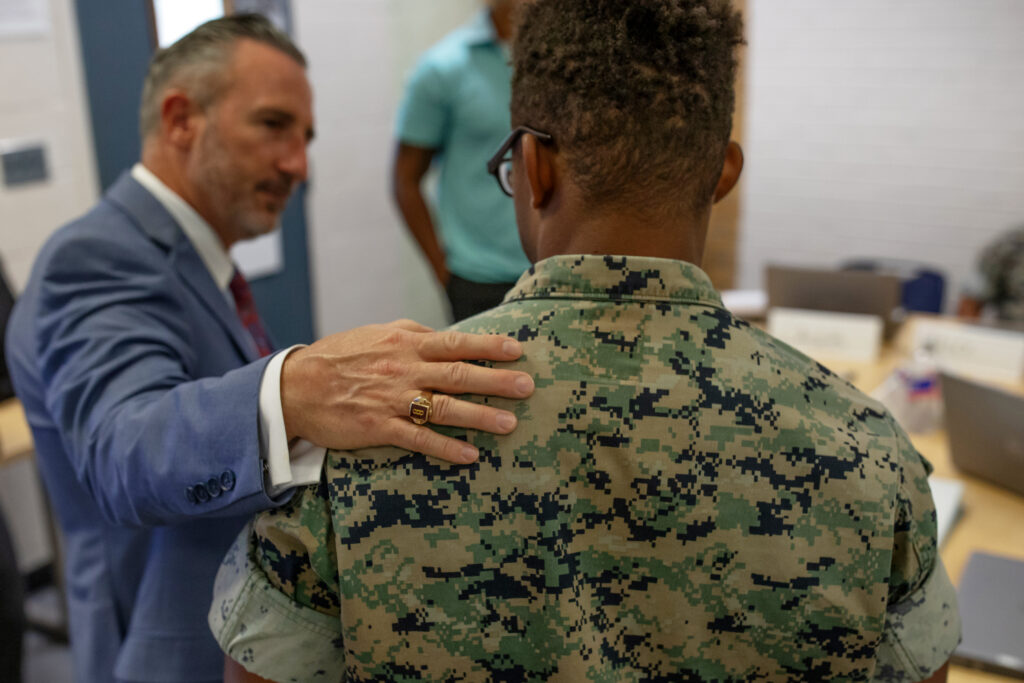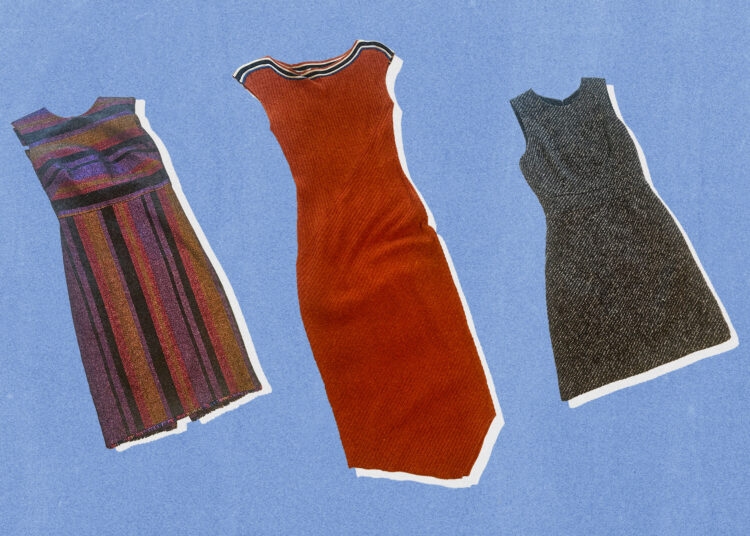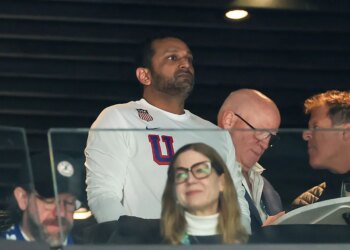Thank you for publishing a realistic perspective on the challenges faced by veterans in Theodore R. Johnson’s Nov. 13 op-ed, “Why ‘tough’ veterans like me claim disability.”
As the daughter of a service-disabled Vietnam War veteran, I’m glad that as a society we’re working to treat veterans better than we did in that era. We owe veterans our gratitude and respect. Still, the typical celebratory Veterans Day rhetoric rubs me the wrong way, especially the slogan “freedom isn’t free.” Since the Korean War, how much freedom did our veterans’ and their families’ incalculable sacrifices secure? Were our Vietnamese allies left to suffer in communist reeducation camps free? Are Afghan women free? How about “multigenerational trauma for foreign policy boondoggles isn’t free”?
In addition to physical and mental injuries, moral injury can be agonizing. Many veterans killed people at our behest. They formed deep bonds with their fellows and then watched them be torn apart, wondering why they made it out in one piece. They live with that forever. Many die by suicide.
Next Veterans Day, we can thank our veterans for their sacrifice, but let’s do it with a somber self-awareness of what we put them through, what we asked them to do on our behalf, and our pattern of willingness to jump into and then later abandon the missions and people they sacrificed so much to save.
Perhaps, in addition to expressing our gratitude, we should ask for their forgiveness. We also have a moral obligation to help bear any burdens they carried home with them, including caring for physical and mental wounds resulting from their service.
Elizabeth Barrett Lippincott, Chapel Hill, North Carolina
The AFT and its members focus on what students need
I was bemused to read Williamson M. Evers’s Nov. 14 op-ed, “This teachers union is chasing power, not performance,” which criticized me and the American Federation of Teachers for not focusing enough on students and parents. The exact opposite is true.
I loved and respected my predecessor Al Shanker and his many achievements as AFT president — but Al died nearly three decades ago. The contemporary challenges confronting American students and teachers are very different, including social media, cellphones and active-shooter drills. Our mission, in a world dominated by disinformation and division, is to ensure that every child has a safe and welcoming environment with curriculums that are engaging, relevant and rigorous.
That’s why the AFT has embraced the promise of career and technical education, strategies for verifying online information, and new research on effective reading instruction, all of which have been tackled and debated at length in our journal American Educator.
I’ll give Evers a pass for falling for right-wing smears about the work the AFT did to reopen schools during the covid-19 pandemic, which was documented in real time in The Post.
One thing as true today as decades ago is the need to fund and strengthen public schools. Today’s AFT understands what Shanker’s did: Teachers want what students need.
Randi Weingarten, Washington
The writer is national president of the American Federation of Teachers.
Remember the ‘Golden Rule’
The Nov. 7 Style article “Family decries use of Rockwell art by DHS” outlined how the Department of Homeland Security is posting paintings from artists such as Norman Rockwell on social media to frame its mass deportation agenda with classic American imagery.
There’s clear evidence that the cherry-picking of Rockwell’s art misrepresents his beliefs.
Rockwell’s iconic “Golden Rule” was not one of the paintings shared by DHS, but the caption accompanying it at the Norman Rockwell Museum reads: “In preparing to paint this 1961 Saturday Evening Post cover, Norman Rockwell noted that many countries, cultures, and religions incorporate some version of the Golden Rule into their belief systems. ‘Do Unto Others as You Would Have Them Do Unto You’ is a simple but universal phrase that reflected Rockwell’s personal philosophy. A gathering of people from different cultures, religions, and ethnicities, this image was a precursor of the socially conscious subjects that Rockwell would illustrate in the 1960s and 1970s. Rockwell was a compassionate man, and this simple phrase reflected his philosophy.”
To this 78-year-old Rockwell fan, his body of work brings to mind a time in America when neighbors and politicians worked together with respect, common sense and compassion to settle their differences and resolve problems for the common good. The message in “Golden Rule” might be a good place to start to return to that better version of America.
Doug Widener, Ashburn
The best World Series
I can’t match Thomas Boswell’s knowledge of baseball — who could? — but his the list of greatest World Series in his Nov. 11 Sports column, “After a stirring postseason, MLB has more at stake,” omitted one of the most memorable fall classics. In 1960, the New York Yankees outscored the Pittsburgh Pirates 55-27 but the Pirates still won in seven games.
In the seventh game, Pittsburgh trailed 7-4 going into the bottom of the eighth but rallied to win the game and the series, 10-9, on a home run by the great Bill Mazeroski. I watched the game with the guys in my college frat house and couldn’t believe what we saw.
Thomas W. Lippman, Washington
The post Americans can do better by veterans. Here’s how.
appeared first on Washington Post.




